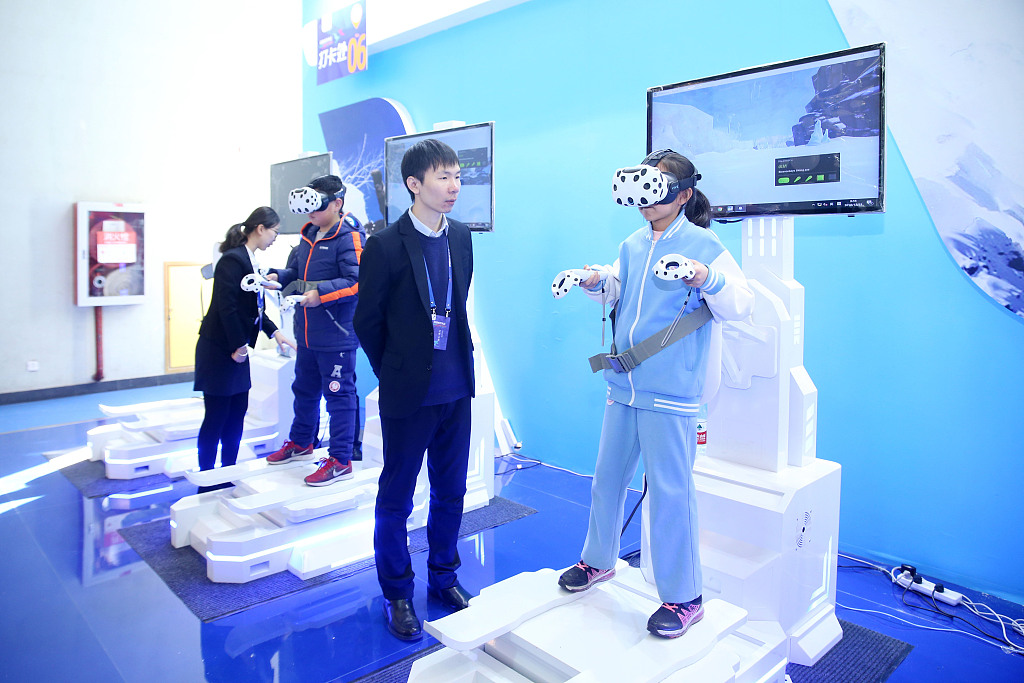China's Ministry of Industry and Information Technology (MIIT) has circulated a guideline aiming to beef up the virtual reality (VR) industry on Tuesday.

Children wear VR glasses to experience winter sport during the China Winter Sports Festival in Beijing on December 22, 2018. (Photos: VCG)
The guideline aims to achieve the goal of mastering core technologies by 2025, honing the overall capability for the industry and becoming a leader in the world.
China's VR market expanded 164 percent year-on-year and reached 16 billion yuan ($2.3 billion) in 2017, data shows. The market is likely to exceed 90 billion yuan by 2020, according to the MIIT.
After ups and downs, the VR industry is expected to return to the spotlight.
The guideline proposes to develop a full value chain for VR technology by 2020, applying VR to critical sectors through building up industrial innovation centers.
Meanwhile, the MIIT is also eying developing solutions for typical industries for wider applications. With a foundation in place by 2025, the country will be better positioned with core technological patents and standards, supported by VR backbone enterprises with strong competitiveness.
The guideline has deployed six key tasks including developing key core technologies that would represent breakthroughs, an effective supply of products, enhancing the application of key industries, building public service platforms, creating a standard specification system, and improving security support capabilities.
Industrial policies are also mentioned in the guideline document.
The MIIT will closely monitor industry development and take a pulse of its trends.
Financial institutions are encouraged to offer financing and credit to serve the VR industry, while offering more options in industrial financing.
VR technologies simulate a virtual environment that resembles reality. Wearing equipment such as helmets and glasses, users feel as if they are actually in the location that is being simulated.
In higher education, VR technology has been applied in many courses including archaeology and cultural relics protection, according to media reports.


